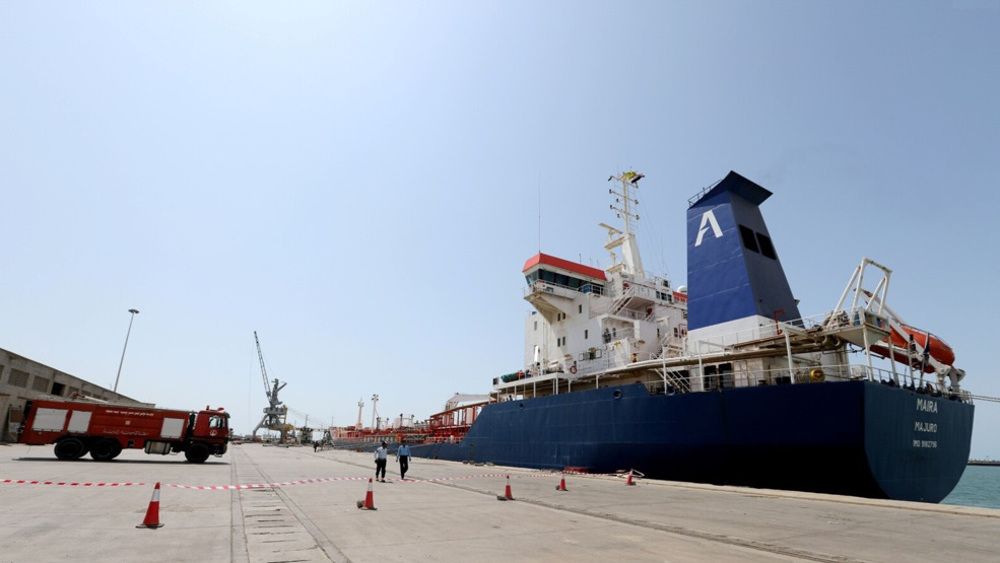Alwaght- Saudi-led coalition has seized two more Yemen-bound oil tankers carrying thousands of tons of fuel for the conflict-plagued country despite UN-brokered ceasefire that has been extended by another two months.
Essam al-Mutawakil, a spokesman for the Yemen Petroleum Company (YPC), announced in a post published on his Twitter page on Tuesday that the Riyadh-led alliance did not give SUPER EMERALD and OCEAN AUTUMN tankers, which were carrying tens of thousands of tons of petrol each, the permission to dock at Yemen’s western port of Hudaydah and offload their shipments.
Mutawakil added that the vessels were impounded despite being inspected and cleared for the port call by the United Nations staff.
The latest incident brings to twelve the number of fuel ships detained by the coalition despite having undergone inspection, the senior Yemeni energy official noted.
Moreover, Saudi-led coalition forces and their allied militant groups have breached the UN-brokered nationwide truce at least 150 times during the past 24 hours.
A Yemeni military official, speaking on condition of anonymity, said the violations included 32 flights of armed Saudi-led reconnaissance aircraft in the skies of the provinces of Ma’rib, Ta’izz, Hajjah, al-Jawf, Sa’ada, Hudaydah, Dhale and al-Bayda, as well as border areas.
The official added that Saudi-led troops and their mercenaries also fortified their positions in the vicinity of al-Hannaya School in al-Aqrud sub-district of the al-Misrakh district in Yemen’s southern coastal province of Ta’izz, and in al-Rawda sub-district of the al-Jubah district in Ma’rib province.
Moreover, Saudi-led troops and allied militants fired shots on 90 occasions at residential buildings and the positions of Yemeni army troops and fighters from Popular Committees in Ma’rib, Ta’izz, Hajjah, Sa’ada, Dhale and Hudaydah provinces as well as border areas.
Saudi-backed militants also launched a total of 21 artillery rounds, targeting residential buildings in Ma’rib, Hajjah, Sa’ada, Hudaydah and border areas. The facilities of Yemeni armed forces were also hit in Balaq al-Sharqi and Mala’a areas of Ma’rib province.
Last month, the United Nations Special Envoy for Yemen, Hans Grundberg, said the extended UN-sponsored truce, running from August 2 to October 2, included a commitment from the parties to intensify negotiations to reach an expanded truce agreement as soon as possible.
Under the terms of the truce, commercial flights have resumed from the Yemeni capital of Sana’a to Jordan and Egypt, while oil tankers have been able to dock in the lifeline port city of al-Hudaydah.
Moreover, in line with the agreement, the coalition agreed to end its attacks on Yemeni soil and end a simultaneous siege that it has been enforcing against Yemen.
Yemen has, however, reported many violations of the truce by the Saudi-led forces.
Saudi Arabia launched the devastating war on Yemen in March 2015 in collaboration with its Arab allies and with arms and logistics support from the US and other Western states.
The objective was to reinstall the Riyadh- and Washington-friendly rulers and crush the Ansarullah resistance movement, which has been running state affairs in the absence of a functional government in Yemen.
While the Saudi-led coalition has failed to meet any of its objectives, the war has killed hundreds of thousands of Yemenis and spawned the world’s worst humanitarian crisis.



























